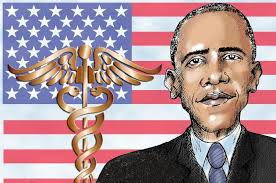It will be the third legal challenge to Obamacare and in an article in The Economist, there are some clear explanations as to the competing issues for those arguing about Obamacare. The issue as to the principle that the law is what is stated by the words themselves rather than what politicians think it should be is a key to the rule of law.
Do we need to seek the advice of politicians before understanding the law?
>>Get your free ‘burn fat’ bottle of safe Garcina Cambogia – Click Here
The Supreme Court challenge, coming before the Court on 4 March, in King v. Burwell, could “gut” the Affordable Care Act (ACA), president Obama’s health-care law.
The article from The Economist reports that in 2012 Chief Justice John Roberts surprised almost everyone by siding with the court’s liberal justices to uphold the constitutionality of the “individual mandate”, which requires most Americans to carry a health insurance policy. In 2014 he voted with the conservatives to allow certain businesses a religious exemption from providing some forms of birth control to female employees.
This time, the challenge to the ACA is semantic. The case revolves around four words in the mammoth 906-page law that could bring the whole thing down.
The inadvertent Trojan Horse consists of a seemingly innocuous subclause regarding the provision of tax credits to low and middle-income Americans, who otherwise could not afford to buy health insurance.
These benefits may be allocated, the law reads, to people buying policies through “exchanges”—that is, online marketplaces (which Mr Obama likened to shopping on Amazon)—“established by the state.” The trouble is this: only 16 states opted to set up their own insurance exchanges. The rest were established by the federal government. When the Internal Revenue Service drafted its rules, it provided the tax credits to people who bought health insurance on both state and federal exchanges.
But based on a literal reading of the law, the challengers in King contend, anyone who uses a federal exchange to buy health-care should not qualify for a federal subsidy. “As statutory construction cases go,” their brief trumpets, “this one is extraordinarily straightforward.”




